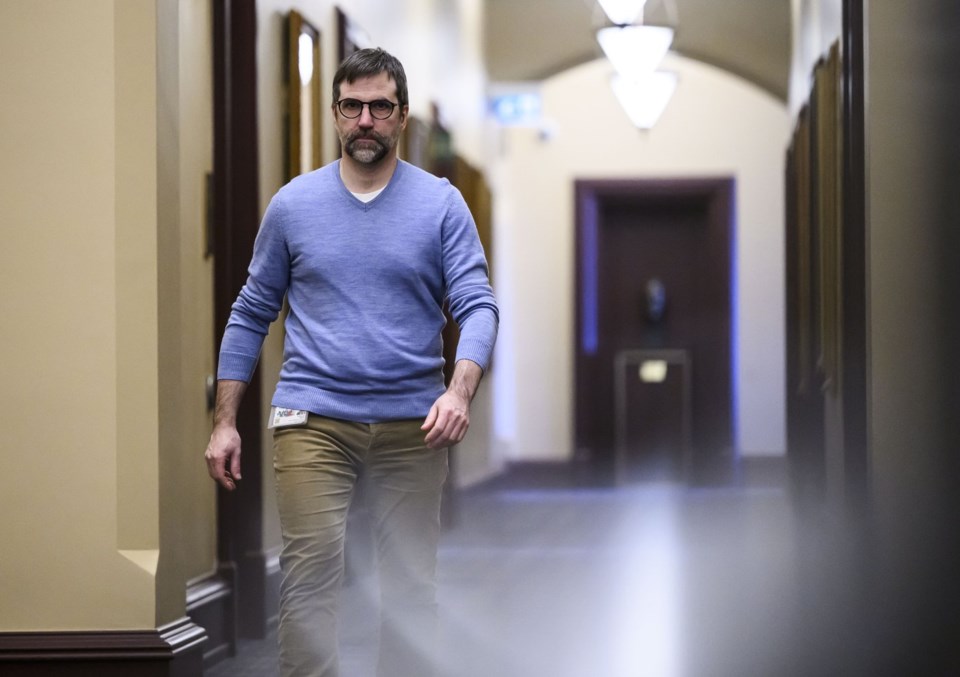MONTEBELLO, QUEBEC — U.S. President Donald Trump's decision to pull the United States out of the Paris climate agreement for a second time is "deplorable" but will not kill off that critical pact, Canada's environment minister said Monday.
Withdrawing the U.S. from the Paris agreement, a voluntary global climate deal reached by nearly 200 United Nations member states in 2015, was one among many energy and environment policy priorities publicized by the White House shortly after Trump's inauguration Monday.
"The President will unleash American energy by ending (President Joe) Biden’s policies of climate extremism," the White House statement reads.
Trump withdrew the U.S. from the Paris accord in 2016 when he took office the first time. Biden returned the U.S. to the agreement in 2021.
Trump's decision to remove the U.S. for a second time means the world's second-most polluting nation is not part of the pact. It upends Biden's promise in the final weeks of his presidency to lower U.S. greenhouse gas emissions by 60 per cent by 2035.
Environment Minister Steven Guilbeault said he is dismayed by Trump's decision but is not sounding the alarm yet.
"It is deplorable that the president of the United States has decided to pull out of the Paris Agreement," said the minister, who was attending a Liberal cabinet retreat in Montebello, Que., on Monday.
"It's 194 countries, and we have collectively continued working to fight climate change, despite the absence of the United States. And one shouldn't forget that, despite the fact that the federal government no longer seems interested in fighting climate change, we can we see a lot of support within U.S. states, municipalities, the private sector."
Guilbeault added it's "quite ironic" that Trump is pulling the U.S. out of a global agreement to fight climate change "as California is going through one of the worst for forest fire seasons in its history."
Tens of thousands of people are displaced in the Los Angeles area as wildfires continue to threaten the region. At least 27 people have been killed and more than 14,000 structures have been destroyed in fires that were unusually severe for the time of year.
The World Resources Institute has produced graphics showing how a warming planet is changing the frequency and intensity of wildfires, and notes that southern California had far less rain than usual in the fall following a summer of extreme heat and drought conditions.
Canada has committed to lowering its emissions by 2030 to 40 to 45 per cent below what they were in 2005, though it is still a long way from that target. Data shared by the government in December showed emissions in 2023 were 8.5 per cent lower than they were in 2005.
Laurence Tubiana, CEO of the European Climate Foundation and a key architect of the Paris agreement, called the planned U.S. withdrawal unfortunate but said action to slow climate change “is stronger than any single country’s politics and policies.”
The global context for Trump’s action is “very different to 2017,’' Tubiana said, adding that “there is unstoppable economic momentum behind the global transition, which the U.S has gained from and led but now risks forfeiting.”
The International Energy Agency expects the global market for key clean energy technologies to triple to more than $2 trillion by 2035, she said.
“The impacts of the climate crisis are also worsening. The terrible wildfires in Los Angeles are the latest reminder that Americans, like everyone else, are affected by worsening climate change,” Tubiana said.
This report by The Canadian Press was first published Jan. 20, 2025.
-With files from The Associated Press
Kyle Duggan, The Canadian Press



